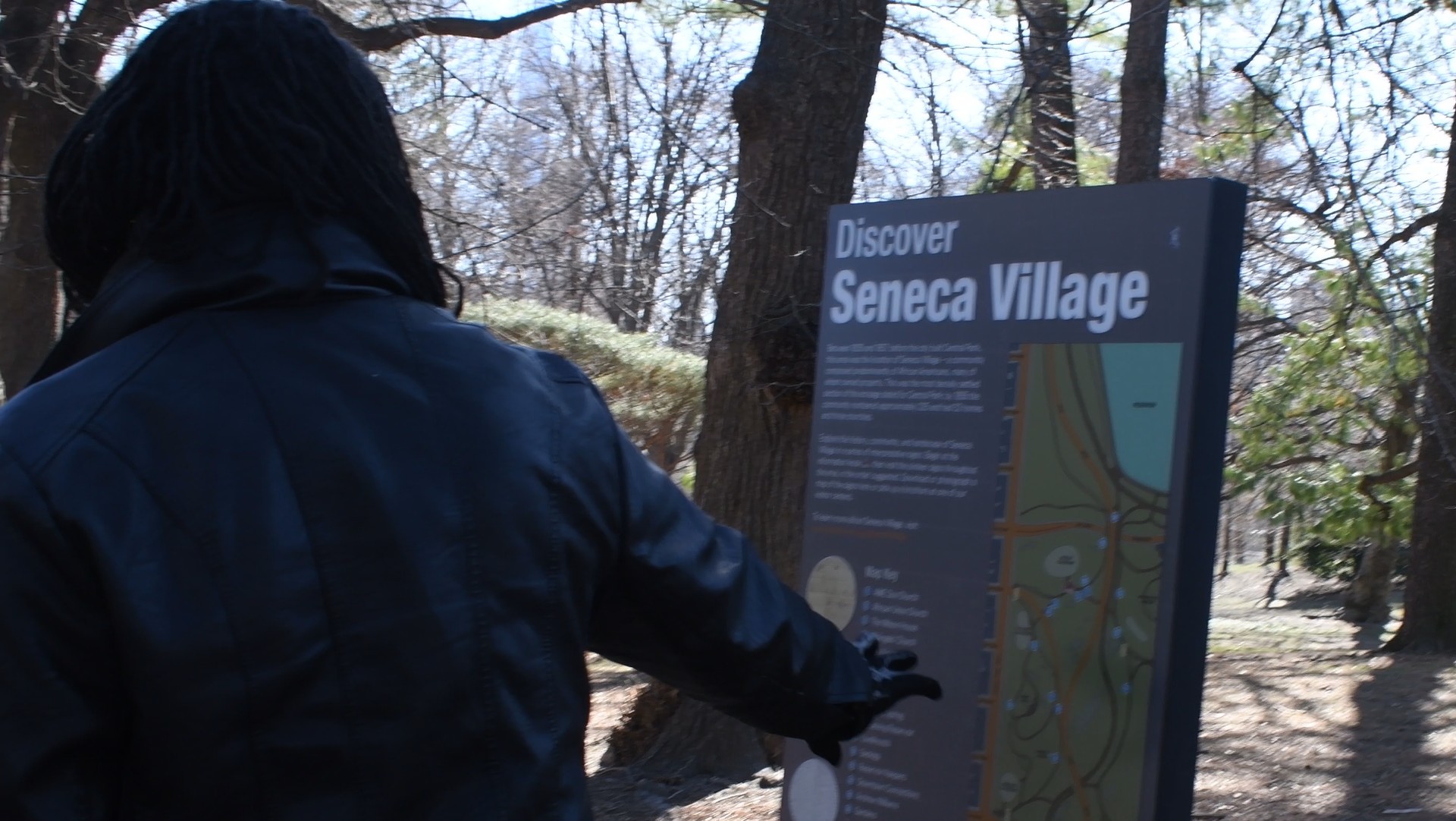
Actor Fritz Weaver reads "The Diplomat" in St. Peter's Church on Lexington Avenue on Friday. Hosted by a group that seeks to promote world peace through the humanities, the free reading of Anton Chekhov's short stories honored the 150th anniversary of his birth. (Photo by Jasmine Brown)
Beate Hein Bennett sat quietly in the chapel of St. Peter’s Church as she listened to a man reading at the pulpit. She closed her eyes to contemplate the words and suddenly let out a burst of uncontrollable laughter. He was reading a story by Anton Chekhov.
On Friday afternoon, 200 people gathered in the church, on Lexington Avenue, to celebrate the 150th anniversary of the Russian writer and playwright’s birth.
The free reading, organized by Toward International Peace through the Arts, consisted of eight short stories written by Chekhov.
The audience, mainly consisting of retired people, sat in the crowded chapel to listen to three prominent actors – Tony Lifetime Achievement Award winner Marian Seldes, and Tony Award winners Tammy Grimes and Fritz Weaver. Other distinguished artists included Conrad Rothbaum, Betsy Von Furstenberg, Bess Rous, Ronald Rand and Stan Tannen.
“I was interested in hearing some of these great actors, like Marian Seldes, Fritz Weaver and Tammy Grimes, all actors that I have seen in their prime,” said Bennet, 65, a Manhattan resident who read about the event in The New Yorker. “So I was interested in hearing them, and I love the Chekhov stories.”
Fritz Weaver read “The Diplomat,” a comedic piece in which a man tries to gently tell his friend that his estranged wife has died. He fails miserably, and instead immediately refers to the man’s wife as “the deceased,” making all manner of references to her death without explicitly saying she died. This sends the friend into a panic as he wonders whether his wife is dead or alive.
“Fritz Weaver’s reading of the last story was absolutely marvelous,” Bennet said with a laugh. “It would be a wonderful scene to adapt to the stage.”
Weaver, 84, who is predominantly a stage actor, may be best known for his Emmy-nominated performance in the NBC miniseries “Holocaust.” He won a Tony Award in 1970 for his portrayal of the headmaster Jerome Malley in “Child’s Play.” He has also performed in Broadway productions of “The Crucible,” ”Baker Street,” “All American,” and “Henry IV, Part I,” among others.
Weaver is a long time friend of the TIPA Project’s founder, Stan Tannen.
TIPA, founded in 1972, aims to promote peace through the humanities.
“Theater addresses the heart, and other sciences address the mind, but the heart is perhaps more important than all of them,” Weaver said. “When you communicate one heart to another, you’ve made a real connection, and I think that has to do with peace.”
Both Weaver and Tannen believe that the arts and humanities can unite people.
“The idea was to celebrate and honor the great literature, poetry (and) drama of all countries as a means of understanding each other,” Tannen said. ”The humanities have always been that which brings us together.”
Tannen and Weaver hope that free public readings and performances of literature from all over the world will spark an international conversation, causing individuals to connect with another in peace, said John Major, a TIPA members since the program began.
TIPA organizes multiple free readings throughout the year. The next reading will be in December in honor of the 175th anniversary of the birth of Mark Twain.

